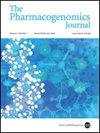药效学基因与重度抑郁症治疗结果的关联:来自撒丁岛队列的结果。
IF 2.9
3区 医学
Q2 GENETICS & HEREDITY
引用次数: 0
摘要
根据汉密尔顿抑郁评定量表(HDRS)的6项和17项缓解阈值,我们研究了MDD中选定的候选药理学(PD)基因与治疗结果的关联。为此,我们招募了158名重度抑郁症患者,他们在一个学术社区精神卫生中心接受了随访。我们重建了他们的临床病史,并测试了一组选定的药效学基因与临床缓解的关系。我们的多变量模型校正了疾病持续时间、药物使用、终生压力事件和性别。我们发现候选生物标志物与HDRS-6和HDRS-17定义的临床缓解之间存在部分一致的关联。在logistic回归模型中,两个多态性rs10975641和rs11628713与HDRS-17缓解有统计学意义。我们的研究结果表明,PD基因的多态性可能影响重度抑郁症的临床反应。有趣的是,我们发现根据对反应的定义,这种关联有一定程度的一致性。本文章由计算机程序翻译,如有差异,请以英文原文为准。
Association of pharmacodynamic genes with treatment outcomes in major depressive disorder: results from a Sardinian cohort
We examined the association of selected candidate pharmacodynamic (PD) genes in MDD with treatment outcomes, defined according to remission thresholds for Hamilton Depression Rating Scale (HDRS) with 6- and 17- items. To this end, we recruited 158 individuals living with MDD followed in an academic community mental health center. We reconstructed their clinical history and tested the association of a selected panel of pharmacodynamic genes with clinical remission. Our multivariate models were corrected for illness duration, substance use, lifetime stressful events, and sex. We found partially concordant associations for candidate biomarkers and clinical remission defined with HDRS-6 and HDRS-17. In the logistic regression model, two polymorphisms were statistically significantly associated with HDRS-17 remission: namely rs10975641 and rs11628713. Our results suggest that polymorphisms in PD genes might influence clinical response in MDD. Interestingly, we showed some degree of concordance of the association depending on the definition of the response.
求助全文
通过发布文献求助,成功后即可免费获取论文全文。
去求助
来源期刊

Pharmacogenomics Journal
医学-药学
CiteScore
7.20
自引率
0.00%
发文量
35
审稿时长
6-12 weeks
期刊介绍:
The Pharmacogenomics Journal is a print and electronic journal, which is dedicated to the rapid publication of original research on pharmacogenomics and its clinical applications.
Key areas of coverage include:
Personalized medicine
Effects of genetic variability on drug toxicity and efficacy
Identification and functional characterization of polymorphisms relevant to drug action
Pharmacodynamic and pharmacokinetic variations and drug efficacy
Integration of new developments in the genome project and proteomics into clinical medicine, pharmacology, and therapeutics
Clinical applications of genomic science
Identification of novel genomic targets for drug development
Potential benefits of pharmacogenomics.
 求助内容:
求助内容: 应助结果提醒方式:
应助结果提醒方式:


